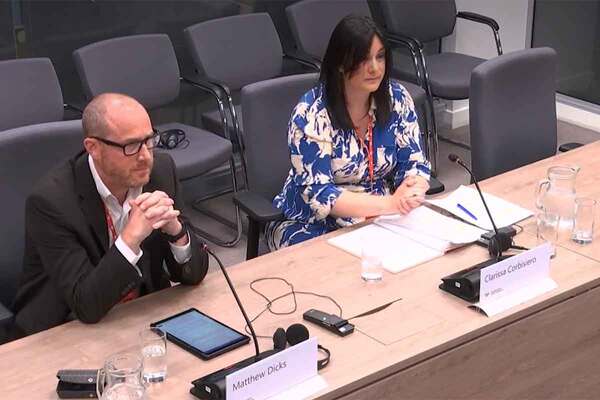No rational legislature would have intended for the Renting Homes (Wales) Act to have this consequence, court hears
A barrister acting on behalf of four social landlords has argued that the interpretation of the Renting Homes (Wales) Act was not intended to have the consequence being tested in court.
Justin Bates, of Landmark Chambers, was speaking during the first day of a test case on the contractual interpretation of the act at the Business and Property Court in Cardiff on Thursday.
The issue centres on whether tenants should be refunded rent because of the landlords’ failure to provide them with a physical confirmation of electrical safety certificates.
The case could be significant as landlords may have to pay back rent to tenants for the period in which the certificates were not issued, potentially costing the sector tens of millions of pounds.
Acting on behalf of landlords Coastal Housing, Tai Calon, Valleys to Coast and Bon Afron, Mr Bates said: “Can a rational legislature really have intended that consequence? We say the answer is no.”
Mr Bates had previously set out how under the legislation, landlords are obliged to provide documentation to tenants after an electrical safety inspection has been carried out. Tenants must be given an electrical installation condition report (EICR) within 14 days of the occupation date.
The act was passed in 2016 and came into force in December 2022, which brought about a significant shake-up of housing law in Wales. Crucially, the act gives tenants new rights to challenge their landlords – even the right to withhold rent – if promises to rectify maintenance issues go unfulfilled.
Landlords must now ensure homes are fit for human habitation from the date the tenant moves in and for the duration of the contract, under Sections 91 and 94 of the act.
Requirements include carrying out an electrical safety test at least once every five years, reduced from 10 years, as well as installing smoke alarms and carbon monoxide alarms where there are gas or oil appliances.
The focus is largely on converted contracts – where residents were already tenants of a social landlord when the act came into force and electrical safety tests had already taken place. For these tenants, there was a year’s grace period, meaning questions around non-compliance arise from December 2023 onwards.
In the private rented sector, it is less likely that the certification existed, which means that new certificates would have had to be issued.
Mr Bates pointed out that for his clients, the majority of tenants had inspections completed and an EICR has now been provided.
Although no reason was provided for why some of the contracts had been overlooked.
Contracts usually contain a “supplementary term” stating that a “contract-holder is not required to pay rent in respect of any day or part day during which the dwelling is unfit for human habitation”. But this term can be left out of the contract if both the landlord and the contract-holder agree.
On the supplemental provisions in the regulations, Mr Bates argued: “If it includes no obligation to pay rent on deemed unfitness, that’s not necessary to make the contract work.
“I can see why actual unfitness would impact on the obligation to pay rent. Because if the property is unfit for human habitation, why should you be paying rent for it at all?
“It’s not fulfilling its purpose as a whole. But deemed unfitness giving rise to a financial sanction cannot in my submission be said to be something which needs to be addressed to make the contract work.”
Another member of the claimants legal team was acting on behalf of Trivallis and Wales & West Housing. He suggested that where the inspection work had been completed and an EICR had been obtained but not provided to the tenants, does not make it unsafe.
Judge Keyser highlighted that the point is that it could “make the tenants feel safer” and that part of the impact of the act was to not just give tenants rights but to “have them in their hand”.
However, it was argued that the act was about objectively making a property safe and not about putting “a tenant’s mind at rest” in the way suggested.
The landlords are seeking clarification on whether they are in breach of a number of sections under the act, as well as two sections under the Renting Homes (Fitness for Human Habitation) (Wales) Regulations 2022.
Also acting on behalf of the landlords was Sarah Salmon of Cornerstone Barristers, who sought clarity on the definition of a dwelling and how the act may apply to communal areas in a building where landlords have an interest in the property.
This is because communal areas are normally covered by a service charge, not a tenant’s rent, so clarity was needed on what contractors have a duty to inspect under the act and how that would impact the issuance of safety documents and the ability to withhold rent.
The trial continues.
Sign up for our Wales newsletter
New to Inside Housing? Click here to register and receive our Wales round-up straight to your inbox
Already have an account? Click here to manage your newsletters












